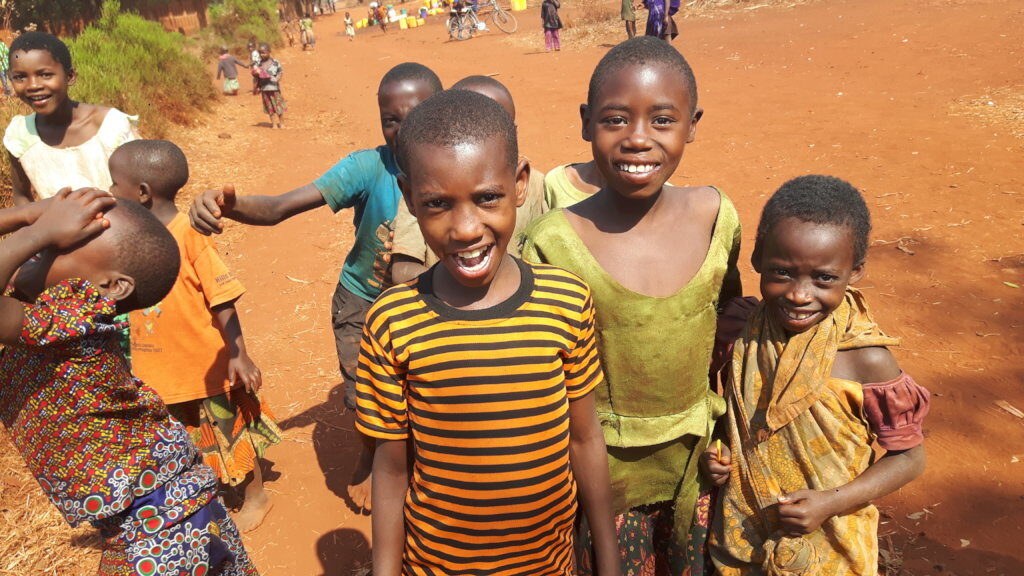Our Story

Our Founder
“A passionate and committed organisation lifting poor families out of extreme poverty in rural communities.”
Benedicto Hosea
Mboni ya Vijana (MvG) was founded in 2014 ago by Benedicto Hosea, the son of a subsistence farmer in the rural Zeze community. Like many others, as Benedicto’s village grew, more and more people tried to make a living from the land. Damaging and unsustainable farming practices led to poor harvests and widespread food insecurity leading to hunger in the community.
Through a twist of fate, Benedicto was given the opportunity to continue his education at a college, where he studied land degradation, climate change and sustainable farming practices. At college he struggled to survive on a tiny grant and was unable to feed himself every day, these challenges fuelled his determination to fight hunger and inequality in his community. When Benedicto returned to Zeze he founded Mboni ya Vijana (MvG) and has remained dedicated to the initiative ever since.
A Commonwealth Point of Light
Benedicto became a local representative of the Tanzania Development Trust (TDT), and as, such MvG works closely with the TDT on various projects. In 2018, the Britain Tanzania Society sponsored Benedicto to visit the United Kingdom and to speak at parliament about his work with MvG. Benedicto’s ambition – from empowering women through microfinance schemes, community honey projects, school gardens, climate education and training on sustainable agricultural practices, planting trees to take climate action and restore our land, entrepreneurship training, to installing water pumps in schools and communities – was recognised with the award of a Commonwealth Point of Light Award by Her Majesty the Queen.
“A home of creativity and social innovation.”
Benedicto Hosea
The First Decade of Mboni ya Vijana
- Clean Water: funding campaigns by TDT have allowed MvG to develop a business drilling shallow rope-pump boreholes bringing clean water to local schools and villages – over 100 have been drilled in the last four years.
- Micro-Finance Initiatives: farmer training is now supported by a scheme that provides small loans to 170-200 people, helping them buy seeds and fertilisers.
- Improving Local Diet: a grant of US$ 150,000 from Corteva in 2020 helped build greenhouses and expand fruit and vegetable production, improving the local diet.
- Tree Planting: MvG has instituted a tree-planting programme, involving local schools to increase the next generation’s awareness of the need for environmental conservation.
- Processing Machinery: since electricity arrived at Zeze in 2023, MvG has invested in crop processing machinery – reducing the amount of food that goes to waste.
- Monitoring Crop Disease: MvG has started to work with Penn State University to develope a high-tech system for monitoring crop disease (and providing advice on solutions) via farmers’ mobile phones.
- Crop Distribution: in 2020 MvG M acquired a pick-up van which is made available to farmers, helping to distribute agricultural inputs and take crop surpluses to local markets.
- Hope Rising Scheme: a self-empowering programme for young girls and boys who are excluded from progressing through an academic environment.
Next Steps
Benedicto’s plan for MvG is to transform Zeze into a trading centre for the surrounding district, with food storage facilities, a cold store and a marketplace that will encourage traders from elsewhere in Kigoma Region to come to Zeze on a regular basis. Through MvG, he wants to help the next generation of farmers become more IT-conscious so that they are confident to go online to discover the best agricultural practices and find new marketing opportunities for their crops. Another goal is to develop more interaction between Zeze and nearby large towns, particularly Kigoma, to encourage greater flow of support and sustainability ideas.
You can find out more about our work in these areas on our pages (and keep up to date on our News page).

